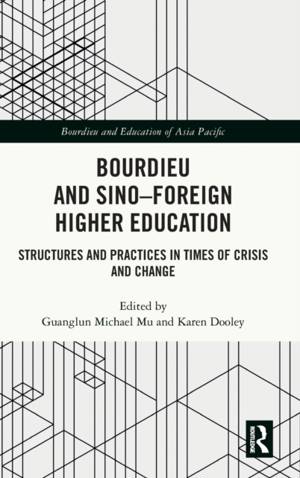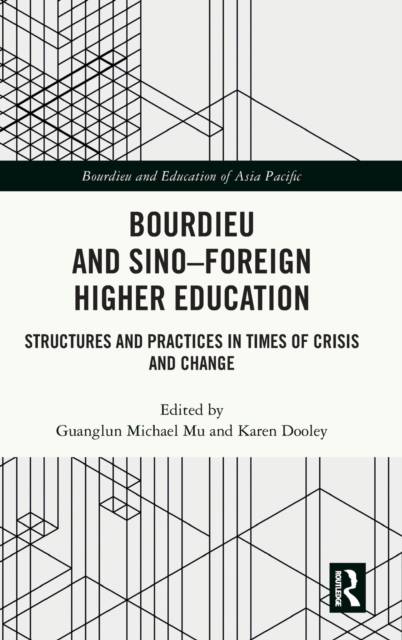
- Retrait gratuit dans votre magasin Club
- 7.000.000 titres dans notre catalogue
- Payer en toute sécurité
- Toujours un magasin près de chez vous
- Retrait gratuit dans votre magasin Club
- 7.000.0000 titres dans notre catalogue
- Payer en toute sécurité
- Toujours un magasin près de chez vous
Bourdieu and Sino-Foreign Higher Education
Structures and Practices in Times of Crisis and Change
Description
Bourdieu's sociology has traditionally been confined to the limits of its French national context. This edited collection seeks to challenge these boundaries, applying Bourdieu's analysis of practice to Chinese education as it gains relevance and attention around the globe.
This book stems from the conviction that empirical investigation and conceptual inventiveness are needed to understand the historical and contextual particularities of Sino-foreign higher education. It brings the sociology of Pierre Bourdieu to the specificity of higher education in and for China and the multi-scalar complexity of higher education beyond the nation. Aggregating recent Bourdieu-informed investigations of empirical worlds of Sino-foreign higher education, the volume mainly considers two problems: structures and strategies of advantage behind institutional and individual action in Sino-foreign higher education; and student participation in the practices of that higher education. The volume probes the potential of Bourdieusian theory and methodology for understanding Chinese higher education beyond the nation.
This book is written to engage with the intellectual work of both established scholars and higher degree research students within China and beyond. The empirical studies provide useful insights for educational leaders in Chinese higher education sectors and in the universities of English-dominant western countries where students and researchers from China have been a growing presence. The theoretical and methodological discussions will be pertinent to scholars who are interested in Bourdieu's sociology and sociology of higher education.
Spécifications
Parties prenantes
- Editeur:
Contenu
- Nombre de pages :
- 182
- Langue:
- Anglais
- Collection :
Caractéristiques
- EAN:
- 9781032353968
- Date de parution :
- 31-03-23
- Format:
- Livre relié
- Format numérique:
- Genaaid
- Dimensions :
- 156 mm x 234 mm
- Poids :
- 453 g

Les avis
Nous publions uniquement les avis qui respectent les conditions requises. Consultez nos conditions pour les avis.





